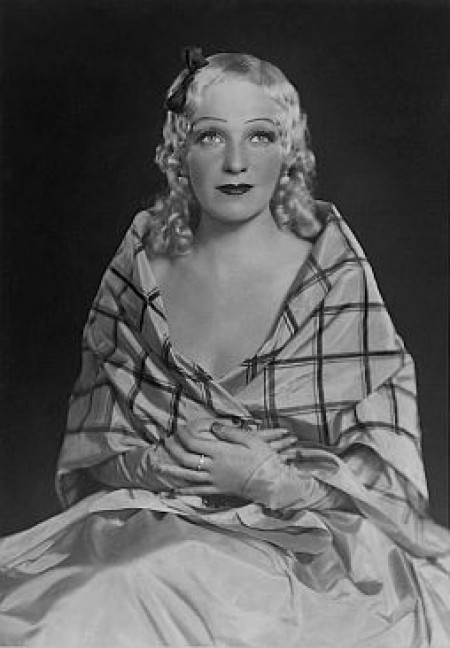
5 March 1903, Budapest - 17 February 1991, Palm Springs
The bright career of Gitta Alpár, American opera and operetta singer started in Hungary.
Her father was the cantor and choral conductor of a synagogue; she received the first singing lessons from him. She studied with Béla Szabados and Laura Hilgermann at the Academy of Music between 1919 and 1924. As a student of the Academy she excelled with her silvery clear, instrumentally sounding, while still dramatic soprano voice and unique coloration skills, already. Alpár made her debut in the Budapest Opera as Gilda. She sang the role of Médi in the operetta Három a kislány (The Three Maiden's House) several times in the King Theater the same year. She became immediately an audience favorite with this role; the City Theater contracted her for more performances, as well. She also made her farewell performance there in 1926, when she was contracted by the Berlin Staatsoper following a short guest appearance in Munich earlier. She debuted as The Queen of the Night in The Magic Flute in Berlin with great success. Her brilliant performances as Rosina in The Barber of Seville, Violetta in Traviata, as well as Amelia in A Masked Ball, are related to the same troupe. She became an operetta singer primarily after 1930.
She performed operettas like Millöcker's The Beggar Student with enormous success, that was followed by the premiere of Ferenc Lehár's Schön ist die Welt as a partner of Richard Tauber. She played title role in an adaption by Th. Mackeben of Millöcker's operetta Dubarry that was premiered in the Admiral's Palace in Berlin. She took part in the premiere of Pál Ábrahám's operetta Bál a Savoyban (Ball at the Savoy) in 1932.
As a popular operetta diva she played several title roles of music films, especially after getting married to Gustav Fröhlich, famous film actor.
She lived in Berlin until 1933 and then she left for Vienna when national Socialists took power, while in 1936 she immigrated to the United States definitively, continuing her career as an operetta singer and film actress there. Her last appearance in Hungary was the one at the Philharmonic Society's honorary concert in October 1936, when 'Gitta Alpár enchanted the audience dressed in the musical vesture of songs by Hubay, Liszt and Lavotta, as the trilling nightingale of opera and operetta stages' (Aladár Tóth).
Summarizing her career one can say that she asserted her voice - remarkable also in international standards, being light and well-asserting at the operetta stage, as well- preferably and with the greatest success at the operetta stages and in different genres of popular music.
Anna Tóth


